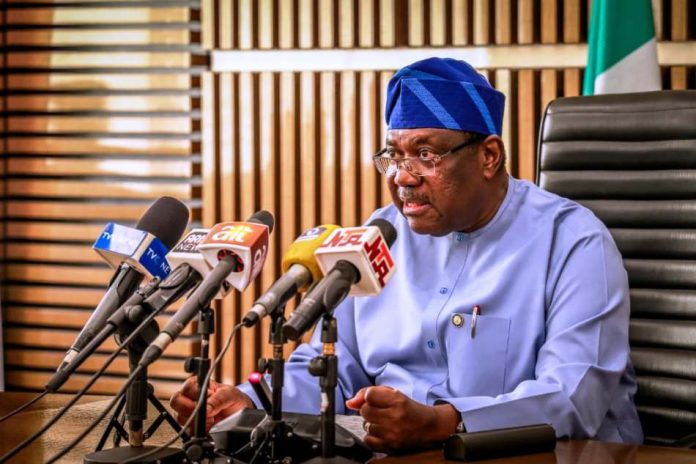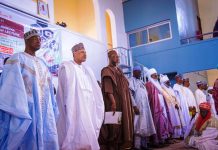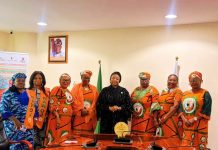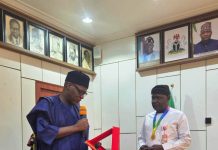
I. STRATEGIC OVERVIEW
Nigeria’s contemporary security challenge has evolved across two major fronts:
- North-East Ideological Insurgency (2002–present) – This began as a local extremist movement but quickly drew ideological inspiration and tactical guidance from global terrorist currents propagated by Al-Qaeda, later transforming through ISIS influence into Boko Haram and ISWAP.
- North-West Criminal Banditry (2018–present) – This is driven overwhelmingly by economic incentives, including illegal mining, cattle rustling, kidnapping-for-ransom, extortion, and territorial control. While opportunistic linkages exist with terrorist smuggling networks in the Sahel, the motivation remains primarily economic deterministic rather than religious.
Across Nigeria, Christians and Muslims have been equally victimised. No credible international organisation has ever classified the crisis as a genocide against Christians or any group.
II. REGIONAL CONTEXT: LIBYA, EGYPT, AL-QAEDA ISLAMIC MOVEMENT (AQIM) & WEAPONS PROLIFERATION
The insecurity faced today is inseparable from the destabilisation that followed the 2011 Libya and Egypt uprisings:
• The collapse of the Libyan state allowed Al-Qaeda-aligned traffickers to loot and disperse heavy weapons across the Sahel.
• Egypt’s instability further opened corridors for extremist ideologies and foreign fighters’ influence.
• Weapons flowing through AQIM-controlled smuggling routes entered West Africa and Nigeria, strengthening Boko Haram, ISWAP and later banditry networks.
III. NIGERIA’S LEGAL VULNERABILITY BEFORE 2010 & THE TERRORISM PREVENTION ACT
Prior to 2010, Nigeria lacked a legal and institutional framework to combat terrorism and transnational organised crime. The 1st October 2010 Independence Day bombing in Abuja, masterminded by Henry Okah, exposed this vulnerability. In response, the Federal Government of Nigeria, among other legislation, enacted the Terrorism Prevention Act (2011) as amended (2013).
These laws empowered security and law enforcement agencies to track and prosecute terrorism financing, enhanced intelligence cooperation, and established Nigeria’s modern counter-terrorism architecture.
IV. HISTORICAL EVOLUTION OF THE INSURGENCY (2002–2025) - Boko Haram (JAS) – Founded in 2002 by Mohammed Yusuf, the group radicalised after the 2009 uprising and Yusuf’s death. Between 2010 and 2014 under Abubakar Shekau, Boko Haram carried out mass killings, suicide bombings, attacks on churches and mosques, the 2011 UN Building bombing in Abuja, and the 2014 Chibok girls abduction.
- Transformation Into ISWAP – In 2015 the group pledged allegiance to ISIS, becoming ISWAP. A 2016 split however, saw ISIS remove Shekau and restructure ISWAP into a more coordinated terrorist organisation operating across Nigeria, Chad, Niger, and Cameroon.
- The Al-Qaeda (AQIM) to ISIS Pipeline – The insurgency’s evolution mirrors the global transition from Al-Qaeda’s early ideological influence through AQIM in the Sahel, to ISIS’s later organisational and financial structures.
V. ECONOMIC ROOTS OF NORTH-WEST BANDITRY (2018–2025)
The North-West banditry is purely economic deterministic, and not religious factors, including:
• Competition for grazing routes, water resources and farmlands exacerbated by desertification.
• Cattle rustling linked to cross-border livestock markets along Al-Qaeda-influenced smuggling routes.
• Illegal mining of gold and other minerals in Benue, Kaduna, Katsina and Zamfara States, funding arms purchases.
• Kidnapping-for-ransom, now an organised industry.
• Extortion and illegal taxation of rural communities.
• Control of fertile agricultural land and transport corridors.
These pressures, not religious, explain the persistence of violence in the North-West.
VI. RECENT MASS-CASUALTY INCIDENTS & HUMANITARIAN IMPACT
Yelewata Attack, Guma LGA, Benue State (13th –14th June 2025)
• At least 100 people were killed (Amnesty, AP, Reuters).
• The Benue State Government initially confirmed 59 deaths, later revised upward.
• Houses were destroyed and thousands displaced.
• The SGF was dispatched to the epicentre of the crisis by the President with relief materials and financial support.
• Subsequently the President visited the victims in the hospitals with relief materials and financial support as well.
• President directed a complete census of the destruction of lives and properties and the affected communities
• President approved release of funds for the reconstruction of the affected areas.
VII. CLARIFICATION ON CLAIMS OF “CHRISTIAN GENOCIDE” - No credible international institution has designated the crisis as genocide against Christians.
- Boko Haram/ISWAP attack both churches and mosques, killing Muslims and Christians alike.
- Bandits target all communities without religious distinction.
- Victims include Christians, Muslims, and traditionalists, confirming that the drivers are economic and ideological, not religious extermination.
- The current misrepresentation of the crisis as “genocide against Christians” fuels dangerous religious tensions, emboldens extremist and criminal factions seeking to exploit sectarian narratives, creates diplomatic frictions based on inaccurate interpretations, and undermines Nigeria’s longstanding efforts to build constructive international security partnerships.
VIII. CAPABILITY OF THE NIGERIAN ARMED FORCES
The Nigerian Armed Forces are highly capable, experienced and professional. They have reclaimed vast territories, degraded Boko Haram/ISWAP leadership structures, and conducted successful multi-theatre operations.
Nigeria does not require foreign troops. What is needed is targeted support from partners, especially the United States, in the areas of intelligence cooperation, technology and military equipment support for advanced engagement against the insurgents.
IX. IMPACT OF RECENT U.S. PRONOUNCEMENTS
Recent pronouncements from the United States have inadvertently emboldened opportunistic violent groups seeking to exploit international narratives and make bold statements by attacking soft targets.
Before these statements, insurgency structures had been significantly degraded and reduced to isolated banditry. This resurgence underscores the vital need for collaboration—not public labeling—between Nigeria and the United States.
X. OFFICIAL POSITION OF THE FEDERAL GOVERNMENT
Nigeria rejects any characterization of the conflict as a genocide against Christians or any group. Verified evidence shows that insurgents and criminal networks attack both churches and mosques,
killing Muslims and Christians alike. The Government remains committed to protecting all citizens and strengthening cooperation with international partners—especially the United States—to dismantle extremist and criminal networks.
Nigeria is a secular state as guaranteed by various provisions of the constitution of the Federal Republic of Nigeria 1999 as amended. No state religion is adopted as a national religion and no citizen of Nigeria is above the Nigerian constitution.
The appointment made by the present administration reflects the diversities of our nation and both Christians and Muslims and members of the Federal Exe4cutive Council (FEC) holding key position in equal proportion including the Nigerian security council, the body that deals with all security challenges in Nigeria.
XI. THE WAY FORWARD: CALL FOR COLLABORATION
To sustainably address the security challenges in Nigeria, the Federal Government will:
- Strengthen nationwide security operations.
- Deepen intelligence-sharing with the United States and allies.
- Intensify follow-the-money operations targeting illegal mining, trafficking, all other forms of transnational crimes in Nigeria.
- Enhance rural security and, border surveillance and governance.
- Uphold strict human-rights safeguards.
As the United States remains the largest democracy in the world, and Nigeria, the largest democracy in Africa, modeled after the American system, our two nations share a historic responsibility to work together to promote global stability, strengthen democratic values especially in Africa, and confront extremist threats in Nigeria and other neighboring nations.
Nigeria is committed to deepening our diplomatic ties and strategic partnership based on mutual respect and reciprocity.
In closing, I wish to appeal to the sense of patriotism of all Nigerians irrespective of tribe, religion or political persuasions that now is the time to speak with one strong and united voice to confront a common enemy. The terrorist, bandits and extremists insurgents, and completely eradicate them from our national borders.
SIGNED:
Senator (Dr.) George Akume, CON, KSJI, fnim
Secretary to the Government of the Federation (SGF)
Federal Republic of Nigeria





